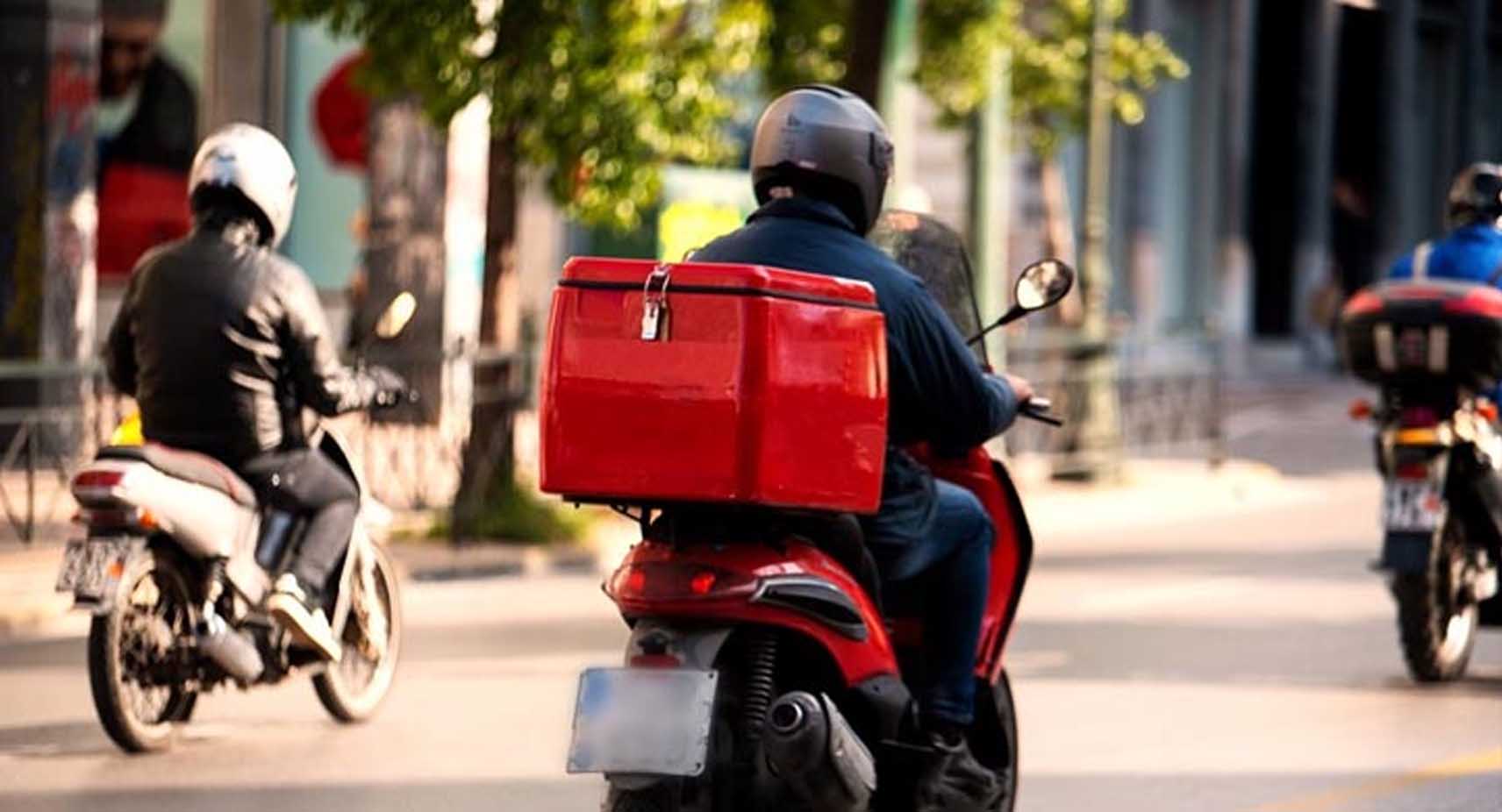The evening of her traditional wedding, Titilayo, a 27-year-old project manager, received a call to come and pick up a package she had ordered from the delivery station. The package contained her wedding shoes, and they had arrived three days late, just when the wedding was wrapping up and guests were leaving.
A week ago, when Titilayo had ordered the shoes from Lagos and the vendor asked what delivery options she preferred, Titilayo hadn’t realised that the real cost of the price difference between the options meant not wearing the shoes for her wedding at all. She had been presented with three options: ₦18,000 for next-day doorstep delivery via DHL; ₦7,500 for doorstep delivery which would take three to five days; and ₦5,000 for a package drop at the nearest motor park (the delivery station), from where she could pick the shoes up. Titilayo lived less than 10 minutes away from the park and three to five days seemed like a reasonable wait time for her shoes to arrive; she chose the third option.
Her shoes did get delivered to the station all right, but Titilayo had already worn something else for her wedding: a pair of champagne-gold sandals her sister had hurriedly purchased from the nearby market that morning. They were nothing close to what she wanted, but she didn’t have the time to be choosy.
Titilayo is one of many customers who have to experience delayed deliveries due to the increased cost of more efficient methods.
In February 2024, DHL increased the prices of their deliveries in Nigeria by 100%. Their reason was pretty obvious: the naira was devaluating and increasing operational costs for the company faster than they were able to make profit.
In the past month, the price of sending a 2kg box that’s about 45cm in length and 20 cm in height from Abuja to Lagos via DHL has increased from ₦20,000 to ₦39,000. People might be able to justify paying exorbitant delivery fees for more expensive items like generators or refrigerators, but not a lot are willing to pay that much for shoes or dresses. This has pushed small business owners in the country into exploring other delivery options which are more tedious, delay-laden, and unsafe.
In an email sent to partners in February, DHL wrote:
“As a network business, we face the constant pressure of balancing currency exchange rates and we make the necessary budgetary decisions to counteract these effects where possible. Unfortunately, the situation in Nigeria has continued to surpass our budgeted levels.
“To ensure operational continuity and keep connecting the world with high-quality service, DHL will levy a Currency Surcharge to all Time Definite International (TDI) shipments. The surcharge percentage will be 100 percent, effective March 1, 2024, and is applicable to transportation charges.”
Iman Muhammad is the founder of Iman Hammad, a fashion brand based in Nigeria’s capital city, Abuja. The businesswoman, who has a large customer base in Lagos, shared that she’s lost several customers in the past two months due to the inflated delivery costs.
Express deliveries from Abuja to Lagos used to cost about ₦20,000 via DHL and were affordable for most of her clients until the price hike on March 1. Now, the same package costs about ₦48,000, which many clients find unreasonable.
“To some extent, I understand them,” she shared. “How do you buy a dress for ₦45,000 and spend over ₦40,000 transporting it?”
To meet her customers’ demands for swift deliveries, Muhammad began going to the motor park in Jabi to waybill the items so they reached Lagos the next day. Despite being cheaper, it soon proved to be unsustainable as it was an incredibly stressful process.
“I got a lot of calls from clients about how rude the drivers were, which was affecting my brand,” she said. “And even when I got a dispatch rider in Lagos to pick up on my behalf, it was such a hassle coordinating the entire process, and so I gave up.”
Now, Muhammad uses SendBox, a logistics service based in Abuja. While it takes about five working days to deliver clothes to clients outside Abuja, it costs her about ₦7,000 for each package—about the same amount she paid for waybills.
When logistics companies broke into the Nigerian e-commerce space, their premise was simple: providing a faster way to send parcels from one part of the country to another. Unfortunately, the naira came tumbling, crushing everything in its fall, including promises of logistical ease. As long as economic factors strain the logistics sector, small businesses and consumers will be locked in a battle between affordability and efficiency.
Hera Samaila, who lives in Abuja, runs Hera’s Closet, a popular social media clothing store in Lagos. While a large number of her customers are within the state, she has a healthy client base in other cities outside like Abuja and Port Harcourt. In the four years since she’s been running her store, she has experimented with different delivery channels in a bid to find the most sustainable option for her buyers in other states.
At first, Samaila started using night buses to deliver to clients as they were cheaper than options like DHL and arrived the next day. She soon realised that this option was risky business as she was left stranded after several incidents involving broken-down vehicles and truant drivers.
“These people [the motor park drivers] have no insurance for your items, and if anything happens, you alone will bear the cost,” she shared. “I get a lot of customers now who ask me to use that option so they get their orders faster, but I don’t oblige.”
While Samaila has found an interstate delivery service that costs between ₦6,000 and ₦7,000 and takes three days on average, there are still some customers who complain about the costs.
Samaila has tried several different tricks to lessen the load of delivery fees for her customers. Some of these include subsiding delivery costs, an endeavour she soon had to give up as it was eating into her profits; arranging for shared deliveries; offering stockpiling for up to three months; and even driving around Abuja to drop off packages herself.
Lola Oyegunle, who sells shoes on Instagram, typically uses a small air freight service to bulk-send orders to cities like Abuja and Benin and then have her representative there dispatch individual orders. According to Oyegunle, this ensured that her clients received their parcels in good time and was also cheaper than using the service for individual doorstep deliveries.
In the past two months, however, the price of next-day deliveries has doubled, forcing her to seek out other delivery methods, all of which take longer to arrive.
“I have to explain to customers that not only have the prices of shoes almost doubled due to the currency devaluation, but that delivery costs have followed,” she said.
The cost of an economy one-way flight ticket from Lagos to Abuja now ranges from ₦90,000 to ₦145,000. In October 2023, these tickets sold for between ₦55,000 to ₦70,000. Within the last four months, flight prices have risen as high as 100% in some cases, with stakeholders blaming jet fuel prices and other operational costs.
Osita Okonkwo, chief operating officer of United Nigeria Airlines, shared that the naira inflation has affected multiple facets of their operations, including the purchase of aviation fuel, which first went from ₦800 to ₦1,000 per litre in October 2023, and then rose to ₦1,300 in February this year.
According to him, all airlines operating in the country were forced to increase their prices or face even more losses than they currently do.
Oyegunle now uses slower but cheaper delivery methods and uses only the air freight service for specific customers who request next-day deliveries.
International deliveries aren’t left out of the price-hike conversation. In December, shipping a 2kg parcel from Nigeria to the United Kingdom cost about ₦30,000 and ₦33,000 to the United States and Canada. In the past month, however, these fees have almost doubled.
Sending a 2kg parcel from Nigeria to the UK and the US now costs about ₦65,000 and ₦75,000 respectively via companies like ShipNaija, according to Muhammad.
Fuelled by rising internet penetration and the youth population, Nigeria is one of the largest markets for e-commerce in the world, with a projected revenue of $2.6 billion by the end of 2024. The last-mile logistics space has fed into e-commerce growth and is now one of the fastest-growing on the continent despite the challenges facing the sector. In the past year, the sector has been hit with a number of policy challenges including a fuel subsidy removal and currency devaluation which have significantly affected operations.



















